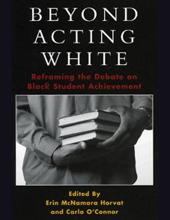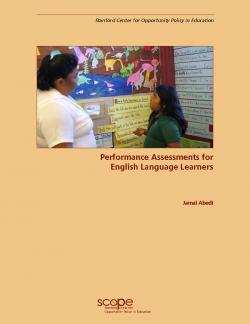Colloquium Provocation Paper: Pay Attention to the Culture of Schooling

Prudence Carter examines what we mean by equity in education in the 21st century through the lens of economic and educational disparities.

Prudence Carter examines what we mean by equity in education in the 21st century through the lens of economic and educational disparities.

An article by Prudence Carter in "Sociological Studies of Children and Youth."

Prudence Carter addresses the notion that Blacks underperform in school because they fear (being accused of) "acting white."

In her book, Prudence Carter refutes common wisdom about teenage behavior and racial difference, and shows how intercultural communication, rather than assimilation, can help close the black-white gap.
LEADS applied cutting-edge knowledge from scholars and practitioners in education, business, and design to the complex challenges confronting urban school systems. It served six districts around the country.
This project investigates educational policies in Botswana and South Africa by measuring student achievement in 112 schools on either side of the countries' border.
Psychology professor Jennifer Eberhardt will discuss three long-held views of blacks in the United States that continue to guide our perceptions and contribute to racial inequalities.

Prudence Carter assesses the literature on cultural explanations for ethno-racial differences in K–12 schooling and academic performance.

Jamal Abedi discusses how performance assessments can be efficiently used to instruct English language learners.

Hazel Markus et al. propose an alternative model of inclusion, which acknowledges differences attached to group identity while creating a setting that is accepting of differences as non-limiting.